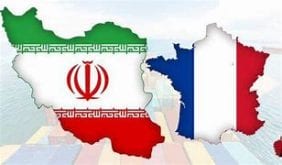PayvandNews – Iranian political prisoner Arash Sadeghi ended his 72-days hunger strike after his wife Golrokh Ebrahimi Iraee was given furlough from prison on $150,000 bail. Ali Shariati, Saeed Shirzad and several other prisoners still remain on hunger strike.

Arash Sadeghi on 7 Jan 2107 at hospital (left)
Arash Sadeghi was taken to hospital on 7 jan 2017 on a proposed $200,000 bail where he was diagnosed with intestinal obstruction and possible rapture. He had been vomiting blood for several days but the prison authorities refused to take him to the hospital. Despite the initial diagnosis, the prison authorities took Arash Sadeghi back to prison even though he had not been discharged by medical staff.
How long can a prisoner on hunger strike last and what has been the result of so many lengthy strikes for political prisoners under the Islamic Republic?
“I am prepared to continue my hunger strike in a glass cell in full view of reporters;” This was Akbar Ganji’s statement to judiciary officials who kept denying to the public that Gangi, a political prisoner from 2001-2016 in Evin prison was not eating in protest. While the judiciary and state media such as Keyhan daily kept denying Ganji’s hunger strike, top officials were also busy trying to persuade him to end it.
Despite references at the time to the hunger strike of Kurdish dissidents in Turkish prisons in 1984 which led to the death of four after 74 days, Akbar Ganji, Iranian dissident journalist, survived over 70 days of hunger strike.
Nutrition Expert Soheila Hamidnia explains that in the first days of the hunger strike the body begins to burn out its fat reserves. If the food deprivation persists with lack of vital nutrients such as glucose, sodium and potassium, muscle cramps set in. Then the body uses up its proteins, and muscles begin to deplete.
The body undergoes a severe weight loss, gums loosen and teeth begin to fall out. Hamidnia, whose husband went though a 77-day hunger strike in prison, adds that administration of an IV which provides some nutrients such as glucose and sodium could allow a longer survival in hunger strikes.
Arash Alayi, Iranian physician who had seen many prisoners on hunger strike during his own imprisonment in Iran reports that there is no set standard about the length of survival on a hunger strike and it all depends on a myriad of factors including the person’s physique, the body’s nutrient reserves and the environment.
Alayi adds that he used to prepare a sugar and salt solution for those on hunger strike to help them through their wet hunger strike.
Doctors stress that the effects of a hunger strike on organs such as the kidneys and the eyes can be severe and at times irreversible. Furthermore, prognosis regarding the health of individuals on hunger strike is subject to normal conditions; therefore, a change in the conditions could easily result in their death.
Hoda Saber, a political prisoner on his tenth day of hunger strike in Evin Prison, suffered a heart attack at night. The attending physician upon examining him decided that the patient was “faking” it and reportedly gets into conflict with the patient and ends up even beating him.
Saber is then returned to his cell but with persistence of his cellmates, the guards finally transfer him to the hospital where he passes away. Arash Alayi says there is a high chance that Saber could have been saved had he been transferred to the hospital when he was first taken to the clinic inside of the prison.
Akbar Mohammadi is another prisoner who died in prison while on hunger strike. Mahan Mohammadi another political prisoner who was later released describes that Akbar Mohammadi was transferred to the prison clinic several days into a wet hunger strike. There he begins to also refuse all forms of liquid. However, after three days he is returned to his cell.
Mohammadi reportedly informs one of his cellmates that according to his ECG test, the physician had told him that he had suffered a partial cardiac arrest. Akbar Mohammadi dies within four hours of his return to his cell.
Widespread reaction to repeated and prolonged hunger strikes in Iran’s prisons has triggered some reaction among a number of the country’s MPs.
Bahram Parsayi, a spokesman for the faction close to President Rohani has said rather than taking a stance, they will try to get into direct talks with judiciary officials regarding this matter. A decade ago, some reformist MPs reacted with greater force going on hunger strike themselves or announcing a “political fast” in their support for political prisoners.
The judiciary has reacted in different ways to hunger strikers. Some prisoners demanding release through their hunger strike have managed to secure releases on bail. Many have however been recalled after publicity around their ordeals has faded.
Arash Sadeghi was on hunger strike demanding a re-evaluation of his wife’s case by the courts. Golrokh Ebrahimi Iraee is serving a 6 year prison term for story that was never published and the Revolutionary Guards had found a draft of it while raiding Arash and Golrokh’s apartment.
On 31 dec 2016, Evin prison authorities successfully dispersed a crowd of hundreds that had gathered in support of political prisoners on hunger strike telling them that they will temporarily release Golrokh only if the crowd goes home. On 7 Jan 2017 despite the fact that Golrokh Ebrahimi Iraee was granted a furlough, she was informed that the furlough will not be extended.
Tehran’s Prosecutor responded to the recent concerns expressed by the progressive members of parliament regarding the hunger strikes saying those advocating for political prisoners should “be wary of becoming the voice of the country’s enemies”.
 Shabtabnews In this dark night, I have lost my way – Arise from a corner, oh you the star of guidance.
Shabtabnews In this dark night, I have lost my way – Arise from a corner, oh you the star of guidance.


